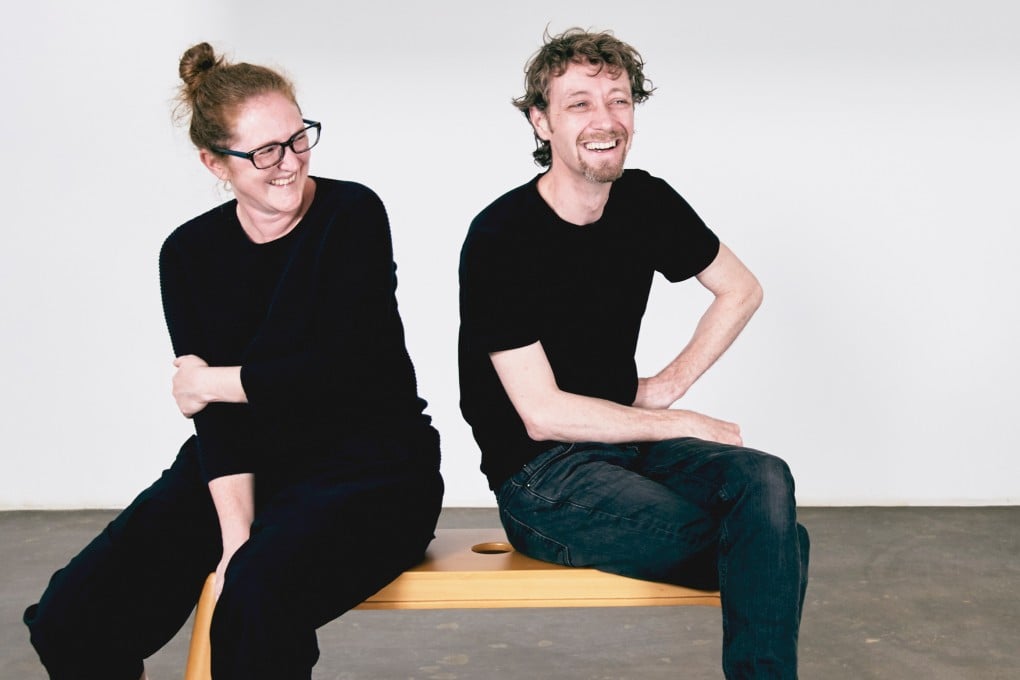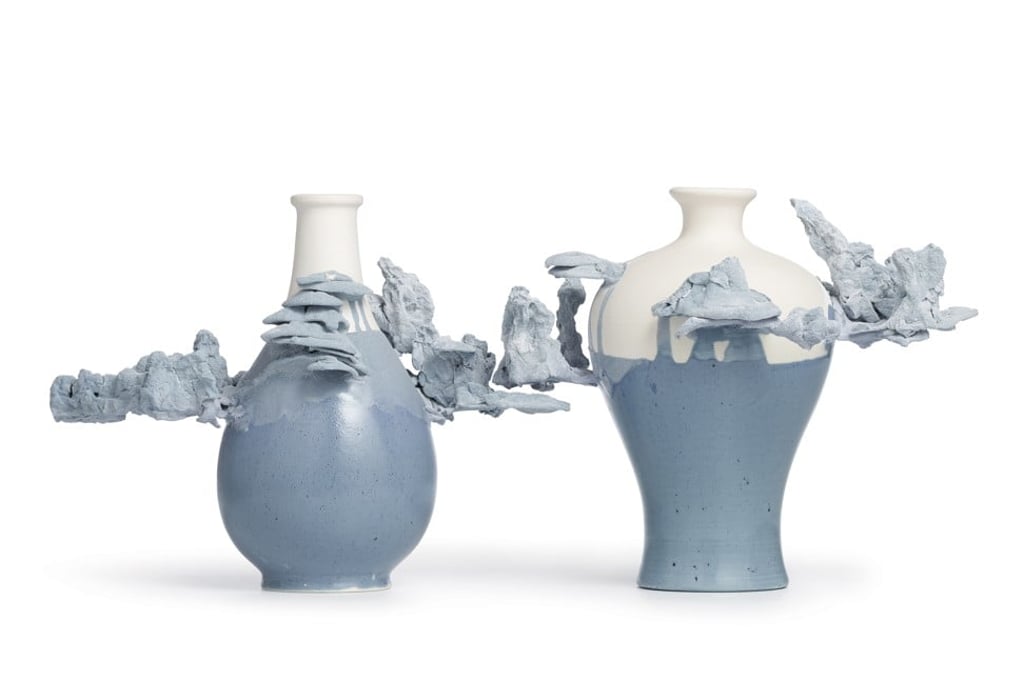How a mistake became inspiration for a unique ceramics series with lattice-like glazes resembling poetic Chinese landscapes
- An accident with glazing led to the husband-and-wife design team behind Hong Kong-based Latitude 22N creating a line quite out of the ordinary
- Chinese history has been an endless source of inspiration for the couple, who have a studio in the ancient porcelain capital of Jingdezhen in mainland China

Julie Progin and Jesse McLin, the husband-and-wife design team behind Hong Kong-based ceramics company Latitude 22N, keep a “library of mistakes”: hundreds of “oddities and quirks” that haven’t quite worked in the kiln but represent an idea too compelling to throw away.
One of these ideas sat on a shelf for two years before being developed into a collection for their conceptual and experimental label Julie & Jesse. The collection is now featuring at a month-long exhibition at Design Spectrum, an events space located in a heritage arts building in Hong Kong’s Wan Chai area.
A joint initiative between the Hong Kong Design Centre and the government-funded Create Hong Kong agency, the event showcases local and international designers and explores the interplay between traditional crafts and contemporary design.
The “mistake” on this occasion had to do with glazing, a mercurial process that often sees the glassy sealant on the surface of the ceramic melt irrevocably into a sticky mess. “It’s kind of beautiful how the glaze forms into tears [in the heat of the kiln] and runs down on to the shelf,” McLin says. “I thought, ‘Well, that’s the nature of this material. That’s what it wants to do. So why not let it?’”

The design duo, known for the pristine precision of the dinnerware and ceramic lighting sold under their retail brand, relished the technical challenge of letting glaze run amok – normally a costly frustration – and soon hit upon their signature technique for this series. By placing a vase upside down in a bed of sand, once a volume of glaze is applied and fired, it runs down the surface and disappears into the sand, where it eventually solidifies into an intricate lattice fanning out from the vase’s midsection.